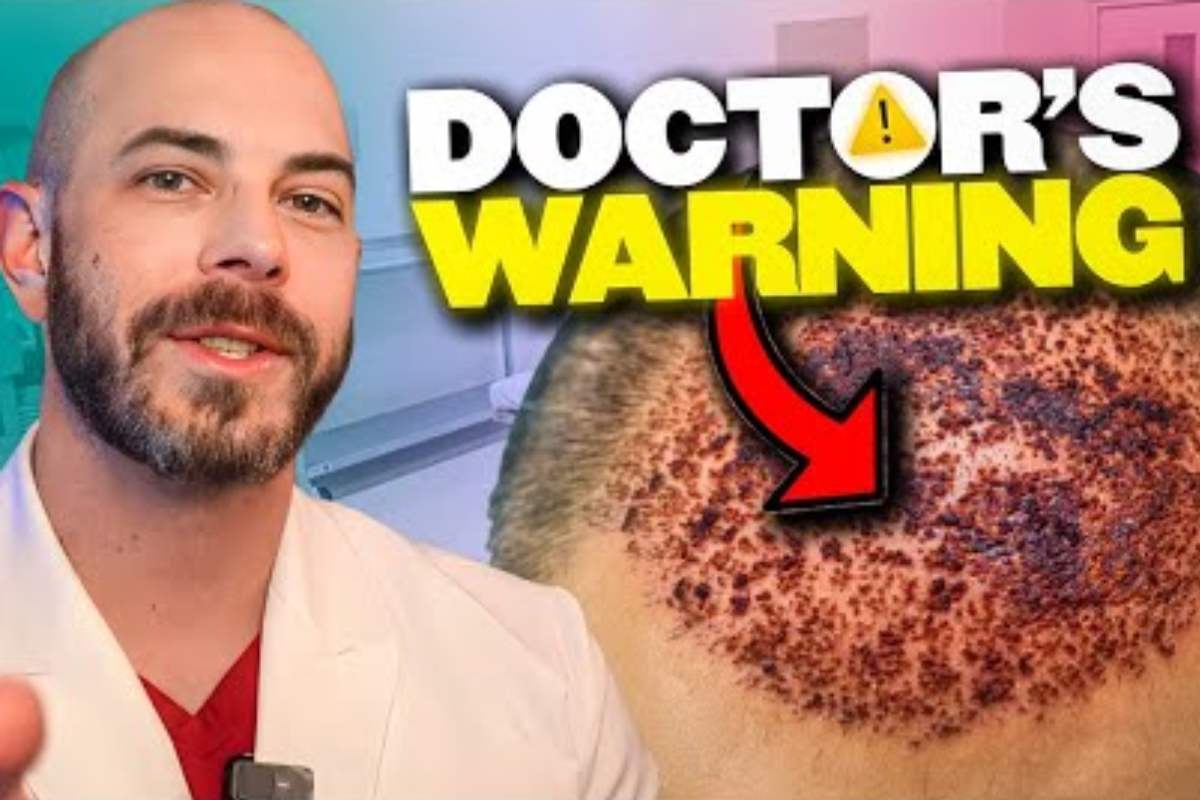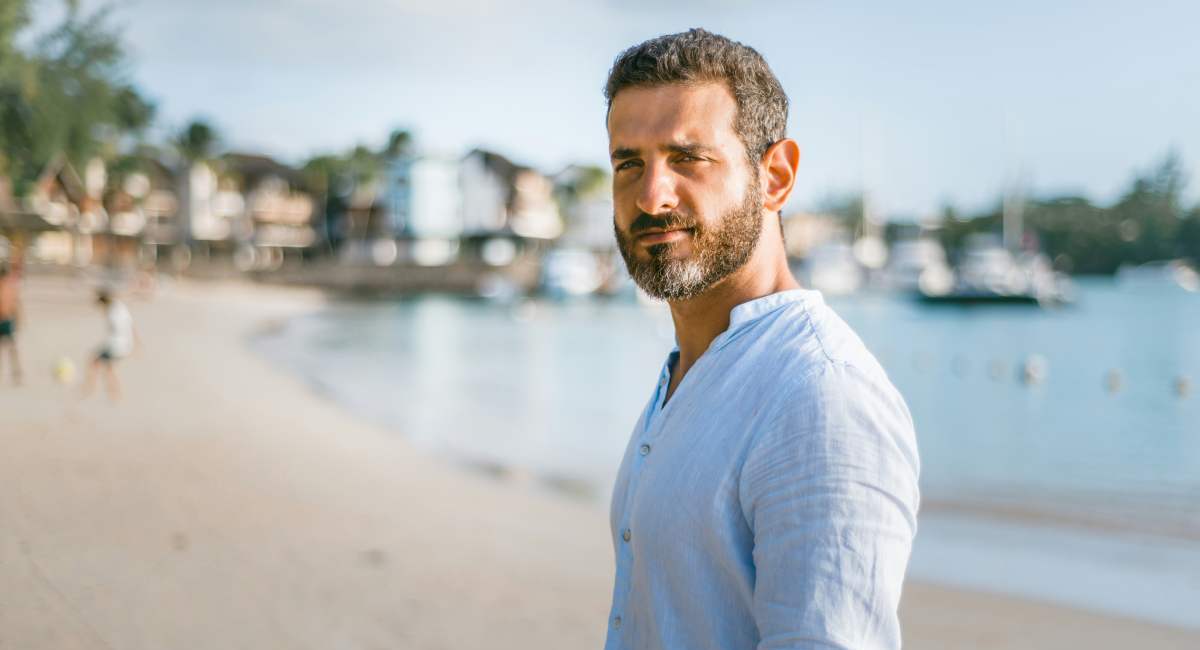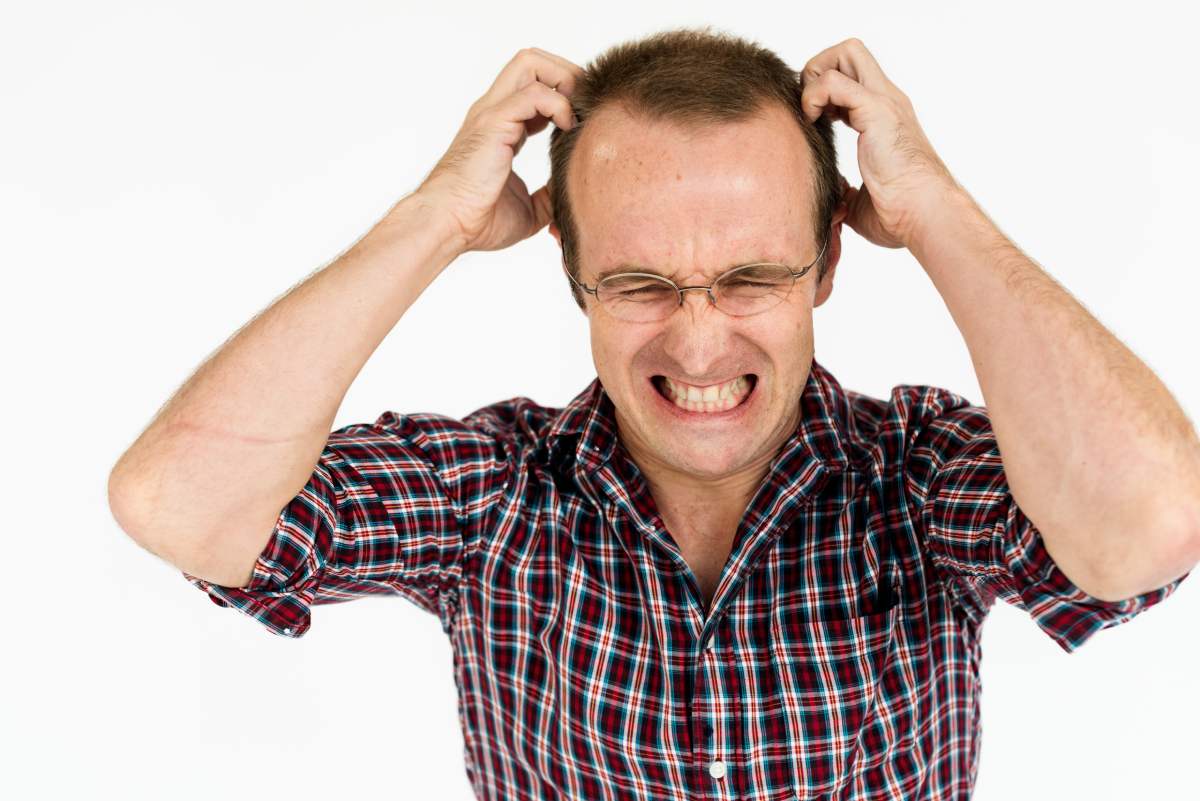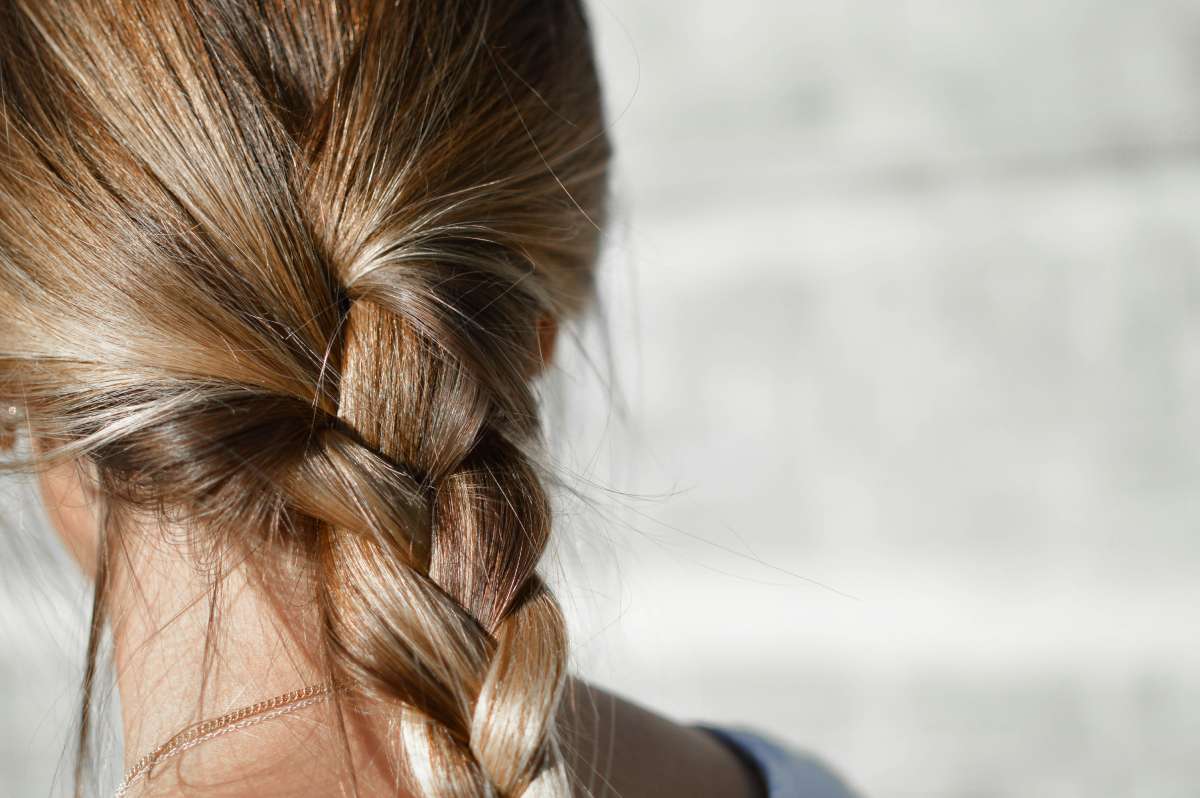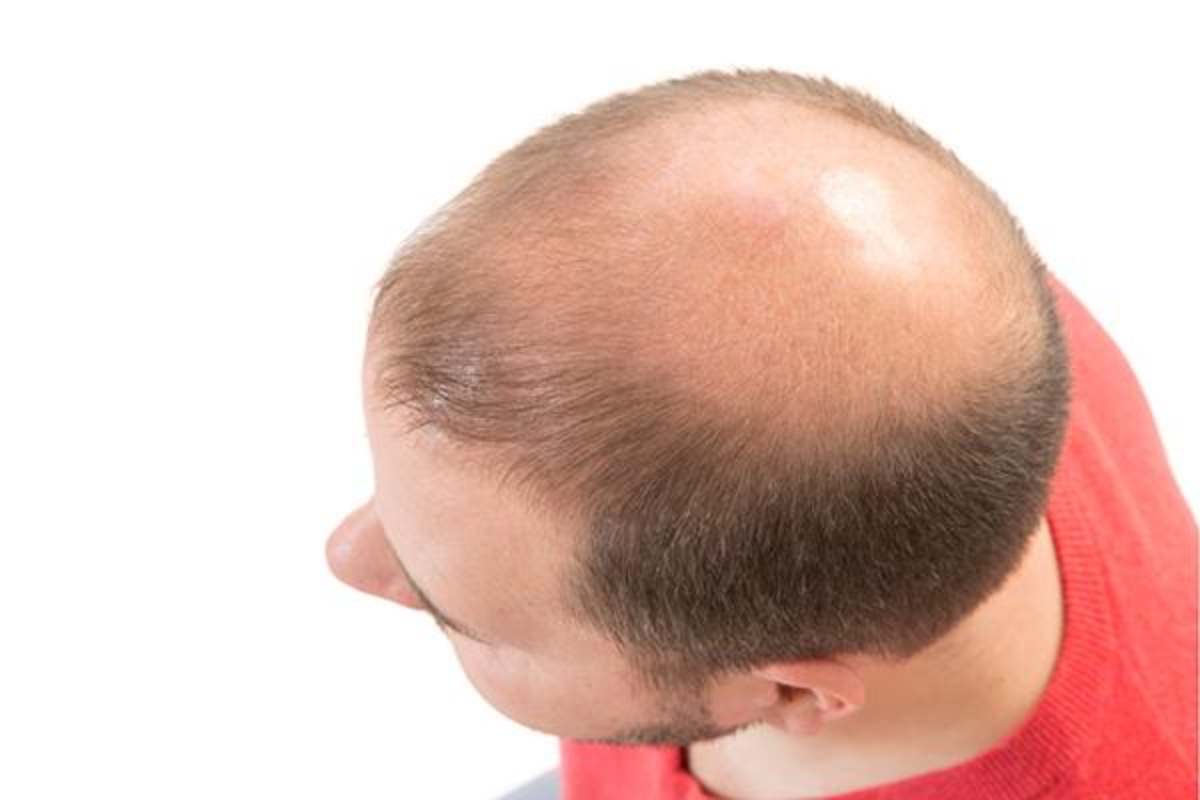When people start to experience hair loss it can be degrading, and it can affect their self-esteem. They often wonder if the hair loss is related to something they did, and if there is a way to reverse it.
We’ve talked about the causes of hair loss throughout different articles on this website, and in most cases of male hair loss, it boils down to genetics.
That’s not to say that there can’t be other causes of hair loss, but statistically speaking, if you’re not dealing with an illness or medication that could be the cause of your hair loss, it’s usually because of genetics.
But what about vitamin deficiency… could that be the cause of your hair loss?
Vitamins and Hair Loss
Vitamins are an important part of hair growth as well as keeping your hair healthy and strong. Because we know vitamins are important to our hair, it would make sense that vitamin deficiency could cause hair loss, but which vitamins should you be paying attention to when it comes to your hair?
There are a number of vitamins that our body requires in order to function properly, which includes hair growth. Being aware of these vitamins, and what sort of foods they are commonly found it, can help you to create a better balance within your body, which can help stimulate hair growth.
Most importantly, before attempting to correct the situation on your own, the first thing you want to do when you suspect hair loss from something other than age and/or genetics, is to talk with your doctor. Your doctor will be able to help you determine if your hair thinning is caused by simple genetics or if it’s caused by an outside force, such as a vitamin deficiency.
You don’t want to self-diagnose when it comes to your health as you can cause more harm than good by trying to treat yourself.
Your doctor can run tests to determine if you’re vitamin levels are actually low enough to the point where they could be causing issues with hair loss. So please be sure to seek medical advice before making assumptions.
Now let’s talk about the different vitamins that could be affecting your hair.
Vitamin D
Vitamin D is one of the most essential vitamins in our bodies. Vitamin D is found in a lot of food that we eat as well as from the sun. If you spend a lot of time indoors, live in an area that does not get a lot of sun exposure, or don’t eat a balanced diet, then you could be suffering from low vitamin D levels.
And while vitamin D deficiency can affect a lot of different aspects of your body, lets talk about what it can do to your hair.
Vitamin D is an important nutrient that helps stimulate your hair follicles and helps maintain the integrity of your hair strands. Without the proper levels of vitamin D in your body, your hair follicle growth can be stunted, which can lead to hair thinning.
If you love science like Dr. Krejci, you’ll like this paragraph. Vitamin D receptors are expressed in two cell populations in the hair follicle: epidermal keratinocytes and mesodermal dermal papilla cells – the cells that create and surround hair follicles. The Vitamin D receptor is what allows the active form of vitamin D to exert influence on hair follicles. Research shows its expression is required for normal hair follicle cycling, and its deficiency can inhibit keratinocytes differentiation and disturb the normal hair follicle cycle. Translation: Vitamin D regulates our hair going from telogen (shedding phase) to anagen (growing phase) and the regrowth of the new hair follicle each time a hair is shed. Without Vitamin D, your hair simply wouldn’t grow.
In some studies, vitamin D deficiency is related to several forms of alopecia, including alopecia areata, female pattern hair loss (androgenic), and telogen effluvium.
Vitamin D can also cause health issues like fatigue, mood changes, pain, high blood pressure and more. So regardless of your hair, it’s extremely important to make sure you maintain the proper level of vitamin D in your body. Foods that are rich in vitamin D include oily fish like salmon, eggs, mushrooms, fortified dairy products like milk & yogurt, tofu, and liver. Dr. Krejci does NOT recommend sunbathing as an excuse to get your vitamin D. If you can’t get enough for your diet, a supplement is a healthier choice.
Iron
As with vitamin D, iron deficiency can cause a variety of different health issues, but one of those could be hair loss.
Iron is important for our bodies as it contributes to hemoglobin production which is carried in our Red Blood Cells. Hemoglobin is extremely important in helping to deliver nutrients and oxygen to your hair follicles. By limiting the amount of nutrients and oxygen that your hair follicles are receiving, it will cause them to slow down, or completely stop, growth.
Many people know that iron deficiency leads to anemia, and anemia too can lead to hair loss. But even before your iron is low enough to cause anemia, it may still affect your hair.
Iron is found in variety of foods like meat and fish but can also be ingested through iron supplements. Keeping an eye on your diet and listening to your doctor is important in ensuring that you’re consuming enough nutrients to keep your whole body healthy, not just your hair.
Vitamin B7
We’ve talked about vitamin B7, also known as vitamin H or biotin, a lot on this website, in regard to how it can help with hair growth and health. While it is rarer to have a vitamin B7 deficiency than iron or vitamin D, it can happen and it has been known to cause hair loss or thinning.
Biotin is sometimes known as the “skin and hair” vitamin because it provides nutrients to keep your nails strong… and our nails are made out of the same material as our hair, so it makes sense that low vitamin B7 would also affect the actual hair on our bodies.
Food that are rich in Biotin include egg yolks, legumes, nuts and seeds, liver, sweet potatoes, mushrooms, bananas, and brocolli. Fun fact: If you eat an excessive amount of egg whites alone, you can actually cause a biotin deficiency. But you have to eat a WHOLE LOT of egg whites to cause this.
What Should I do if I Experience Hair Loss?
If you begin to experience hair loss, and you believe it is being caused from a vitamin deficiency, the first thing you should do is talk with your doctor. Don’t run out to the store and start loading up on vitamin supplements before you’ve spoken with your normal physician or a hair loss specialist, as you could be doing more damage to your body by trying to self-diagnose.
Your doctor will be able to determine whether your hair loss is from a specific deficiency or if it’s being caused by something else. In most cases genetics is going to be the cause of your hair loss if you haven’t noticed any changes in your diet, medications, or overall health. So it’s extremely important to talk with a medical professional before trying anything on your own.
Hair loss can be a very traumatizing experience for people. It can attack their self-esteem, it can change their moods, and it can cause embarrassment, but it’s important not to jump to conclusions.
At the Limmer Hair Transplant Center in San Antonio, we can help you determine the root cause of your hair loss and help you develop a treatment plan to help mitigate the hair thinning you may be experiencing. Contact us today to see how we might be able to help!

